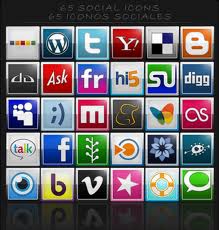 Earlier this week Microsoft posted a blog entry showing statistics from their SmartScreen technology built into Internet Explorer (IE) 7, 8 and 9.
Earlier this week Microsoft posted a blog entry showing statistics from their SmartScreen technology built into Internet Explorer (IE) 7, 8 and 9.
Their conclusions? One in every 14 downloads is malicious (of the malicious files that Microsoft is aware of) and this represents between two and five million malware attacks per day against IE users. Microsoft uses this to assert that users are falling prey to malicious downloads far more often than drive-by exploits.
While these statistics are fascinating, and very useful for those of us without the ability to collect this type of information, Microsoft is comparing apples to. . . nothing.
SmartScreen itself is unable to prevent exploits from convincing Adobe Reader, iTunes, Real Player, Adobe Flash, Java and other technologies from downloading malicious content, and Microsoft hasn't presented any data on how often exploits are actually being used.
The purpose of their post is to point out the success of Microsoft's reputation filtering they added in IE 9. While it is an interesting step forward, Microsoft's own statistics raise more questions than they answer.
Microsoft states that 90% of downloads do not trigger a warning, which implies that 1 in every 10 times I try to grab something I get a scary warning message. When I receive this scary warning message, there is a 30% to 75% chance that it is a false positive.
This reminds me of an article I wrote for Virus Bulletin last year about browser SSL certificate warnings. Considering the scary warning messages that browsers display to users and the frequency with which they are confronted with these warnings, we end up training our users to simply click through.
Users think, 'If this were truly dangerous, it would have simply been blocked, right?' Microsoft's statistics show that in a real world attack 99% of users did delete the file, but this warning message is still a new phenomenon. It will be interesting to see how many click through over the long run.
Even worse, if up to 75% of the time you get the warning you are downloading a legitimate file, will you continue to pay attention to the warning when it really matters?
Later in their post they claim that a typical user is presented this warning only two times per year. If that is true, that means users are only downloading 20 files per year and won't see this too often. I don't know anyone who only downloads 20 files per year.
These numbers just don't really add up.
Microsoft also points out that applications triggering the warning are not Authenticode signed most of the time. While the concept of digital signatures representing trustworthiness is at the heart of many security solutions, its implementation is often flawed.
As we saw with the Stuxnet worm last year, legitimate signing certificates that were 'trusted' were stolen and used by malware authors to increase their chances of bypassing security technologies.
I do not believe most computer users are equipped with the knowledge necessary to make good decisions regarding deeply technical problems. When they are confronted with a question attempting to stop them from making a mistake it is often viewed as an annoying roadblock.
Earlier this month we saw a large number of Apple Mac users falling victim to a fake anti-virus attack that required them to type their administrative password. Clearly users will jump through hoops when presented with the opportunity if they are being tricked into doing something they think they want to do.
As security experts we need to make safety online as black and white as possible. While SmartScreen is doing a great job at stopping known badware, I'm not convinced that reputation technologies that require users to make technological decisions are the right answer to the problem.
" The Roving Giraffe News Report " provided by Ace News






 One of the guys at the North American branch of SophosLabs recently stumbled across some Euros following an overseas trip, and wondered how much they were worth in dollars.
One of the guys at the North American branch of SophosLabs recently stumbled across some Euros following an overseas trip, and wondered how much they were worth in dollars.


 Another scam is being spammed out across Facebook, tricking users into helping its spread by fooling them into believing they will discover who is secretly viewing their profile.
Another scam is being spammed out across Facebook, tricking users into helping its spread by fooling them into believing they will discover who is secretly viewing their profile.
